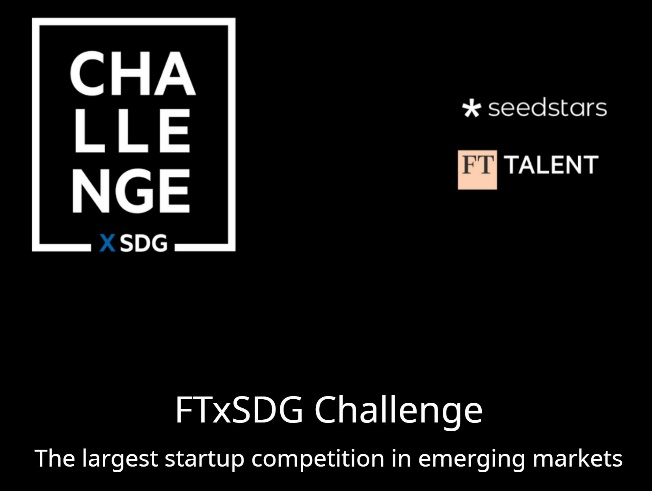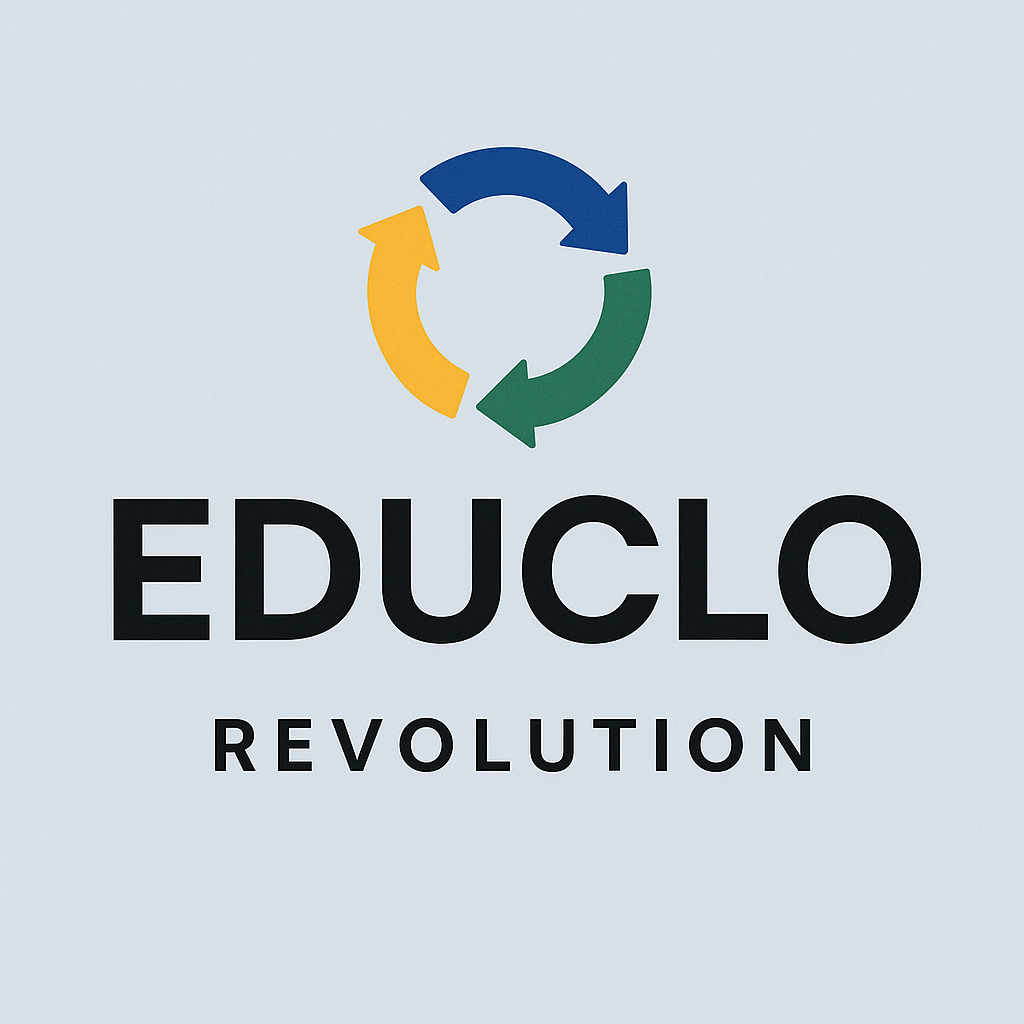AI in Education Governance: EDUCLO Powering Real-Time Governance with AI
Aug 11, 2025

AI in Education Governance with EDUCLO
Education systems worldwide face deep-rooted challenges, unequal access, slow procurement cycles, fragmented data, rising operational costs, and inadequate measurement of learner outcomes. Integrated AI can help address these through real-time policy insights, optimized resource allocation, personalized learner pathways, and streamlined administration (OECD, 2023; OECD, 2024).

EDUCLO, a modular digital governance platform with 40+ modules and 200+ submodules spans teaching & learning, communications, ERP, and a global education marketplace, empowering institutions to scale effectively and equitably (OECD, 2023).
This document outlines how EDUCLO embeds AI across governance layers, presents architecture, ethical safeguards, an implementation roadmap, and measurable impact metrics for policymakers, CIOs, L&D leaders, and investors.
The Problem Space: Why AI for Education Governance?
- Fragmented data and siloed decision-making hamper evidence-informed policy (OECD, 2023).
- One-size-fits-all learning models dilute effectiveness and equity.
- Legacy systems slow innovation and scale, trapped by rigid procurement processes (OECD, 2023).
- Regulatory complexity increases compliance burden and risk exposure.
- Stakeholders: students, employers and funders demand accountability and transparency.
AI-enabled governance addresses these gaps with predictive insights, automation, continuous performance monitoring, & personalized interventions (OECD, 2023; OECD, 2024).
EDUCLO: Problem Capabilities Relevant to Governance
Unified Platform
Integration across teaching & learning, communications, finance, and HR functions.
Real-Time Governance
Dashboards for compliance, enrolment trends, quality indicators, and streamlined procurement (OECD, 2023).
Education Marketplace
Facilitates exchange of courses and micro-credentials globally (UNESCO, 2023).
AI Strategy
Adaptive learning personalization (AI-driven models, see Jaiswal & Arun, 2021), accreditation automation, fraud and anomaly detection (Potin et al., 2023), demand forecasting, course-employer matching, and conversational interfaces.
Scale & Modularity
Customizable across national, institutional, and corporate contexts.
Core AI Use Cases for Education Governance
Policy & Planning
Enrolment forecasting, capacity planning, and resource optimization for faculty and facilities (OECD, 2023).
Quality Assurance & Accreditation
Automated evidence collection with continuous quality monitor systems.
Personalized Learning & Pathways
AI-crafted learner profiles that recommend personalized curricula and stackable micro-credentials. Adaptive learning shown to improve outcomes; personalization has a moderate-to-large effect on learning gains (Hu, 2024; Strielkowski, 2021).
Compliance, Audit Governance
Anomaly detection in procurement using graph-based methods effectively flags fraud (Potin et al., 2023). NBA and NAAC Real-Time Data.
Marketplace Intelligence & Credentialing
Smart recommendations aligning institutional offerings with employer skills demand; supported by emerging micro-credential frameworks (UNESCO, 2023).
Communication & Stakeholder Engagement
Conversational AI aids admissions, alumni outreach, service queries; sentiment analysis supports governance through stakeholder feedback.
System Architecture (High Level)
- Data Layer: Secure data lake, IAM, unified learning and institution profiles.
- Integration Layer: APIs, ETLs (SIS, LMS, HRIS), event streaming.
- AI Services Layer: Versioned models for forecasting, personalization, anomaly detection, and NLP with explainability.
- Governance & Policy Engine: Rules-based logic, audit trails, workflows.
- Application Layer: Dashboards, admin panels, marketplace UI, chatbots.
- Security & Privacy: Encryption in transit and at rest, consent-based use, access controls, logging.
Data, Privacy, Security & Compliance
Responsible AI in governance must follow:
- Equity & Infrastructure: Digital transformation must build inclusive access to devices & connectivity (OECD, 2023).
- Privacy & Data Protection: High-risk AI tools (e.g., in education) demand safeguards, assessable transparency, and human oversight (OECD, 2024).
- Ethics & Bias: Bias monitoring & mitigation, imperative (OECD, 2024).
- Security Practices: Enforce multi-factor authentication, audits, incident response.
- Data Governance: Clear data minimization, retention policies, learner portability, and auditability.
Ethics, Fairness & Human Oversight
- Bias Assessment: Institutional auditing for demographic fairness (OECD, 2024).
- Human-in-the-Loop (HITL): High-stakes decisions require human review, appeal channels.
- Explainability: Clear insights into AI-driven decisions (OECD, 2024).
- Ethics Board: Cross-stakeholder oversight for governance impact and AI behavior.
KPIs & Impact Measurement
Learner Outcomes
Completion rates, time to credential, employment placement.
Operational Efficiency
Procurement speeds, cost savings, anomalies reduced.
Policy Agility
Decision-to-outcome time, data-driven policy actions.
Marketplace Metrics
Conversion rate, credential demand alignment.
Ethics & Compliance
HITL review times, bias incidents, stakeholder satisfaction.
Business & Financial Considerations
Cost Savings
Automation, fraud reduction, process efficiency.
Revenue Opportunities
Marketplace commissions, analytics subscriptions, API licensing.
ROI Horizon
Conservative institutional deployment sees ROI within 12–36 months post-adoption.
Risk Management & Mitigation
- Data Breach: Security hardening, third-party audits, response protocols.
- Model Drift: Ongoing monitoring, retraining pipelines, A/B testing.
- Regulatory Compliance: Privacy-by-design, configurable data residency.
- Change Management: Stakeholder engagement, faculty champions.
Implementation Roadmap (Phased)
Phase 0 (0–3 months)
Readiness assessment, data inventory, pilot unit selection.
Phase 1 (3–6 months)
Deploy data layer, integrate systems, launch governance dashboards and basic forecasting.
Phase 2 (6–12 months)
Add adaptive learning, learner profiling, marketplace connectors, & micro-credential pilots.
Phase 3 (12–24 months)
Scale modular deployment, automate accreditation, enhance simulation tools, institute governance board & model audit regimen.
Recommended Next Steps for Adopters
- Pilot AI-enabled enrolment forecasting or resource optimization.
- Form an AI governance committee with diverse stakeholders.
- Conduct privacy/data impact assessments.
- Define KPI and ROI targets for initial and scale phases.
- Collaborate with EDUCLO for platform configuration, piloting, and roadmap delivery.
Conclusion
AI in education governance is no longer optional, it's essential for efficiency, equity, and responsiveness. EDUCLO's modular platform, embedded AI, and marketplace integration make proactive, data-driven governance a reality.
As OECD and UNESCO frameworks show (OECD, 2023; OECD, 2024; UNESCO, 2023), education systems must move from digitization to digital transformation grounded in privacy, fairness, and human oversight.
EDUCLO is more than a tech infrastructure, it's a governance catalyst. It aligns transparency, market intelligence, and adaptive learning to foster a globally connected, accountable, and agile education ecosystem.
The integration of AI into education governance is no longer a distant prospect but an immediate imperative. EDUCLO, with its Unified Digital Platform encompassing over 40 modules, 200+ submodules, and a robust AI strategy, demonstrates how advanced analytics, automation, and adaptive learning can be harnessed to create transparent, efficient, and impactful governance systems.
By centralizing data flows, enabling real-time decision-making, and fostering accountability, EDUCLO addresses long-standing challenges in educational administration, from procurement delays and compliance gaps to inequitable resource distribution. Furthermore, its AI-powered insights empower policymakers, institutional leaders, and educators to anticipate trends, mitigate risks, and personalize learning at scale.
The global momentum towards digital transformation in education, as reinforced by OECD (2023) and UNESCO (2023) policy frameworks, indicates that platforms like EDUCLO will become critical infrastructure for future-ready education systems. The choice for stakeholders is not whether to adopt AI-driven governance, but how quickly and strategically they can integrate it to remain competitive and equitable.
In essence, EDUCLO is more than a technological solution, it is a governance catalyst. By bridging marketplace dynamics with transparent oversight, it enables institutions to move from reactive administration to proactive, data-informed leadership. The outcome is a more agile, accountable, and globally connected education ecosystem, ready to meet the evolving demands of the 21st century.
About EDUCLO
As an aspiring GovTech & Ed-Tech leader with Real-Time Governance in the education sector, innovation and digital transformation are our core practices. Our mission is to help emerging economies access economies of scale by integrating technology to improve the quality of education and accelerate the gross enrolment ratio.
Our passion for creativity, attention to detail and contemporary innovation customised to the education sector keeps us as a default choice to work with the education industries. Our goal is to uplift the emerging economies to enter into a level playing field for economic prosperity and awareness through education.
Our clientele includes departments of education, higher education councils, public universities, private universities and professional education institutions. Our digital market also serves and connects learners to thought leaders and education providers.
EDUCLO is the world's first education technology platform with an Enterprise Resource Planning and Marketplace for the education sector connecting students and accredited higher education and professional education organizations. EDUCLO's vision is to enhance the quality of education and accelerate gross enrolment in education industries.
 EDUCLO is a qualified FTxSDG Challenge by Seedstars, a FT Talent Initiative.
EDUCLO is a qualified FTxSDG Challenge by Seedstars, a FT Talent Initiative. EDUCLO is qualified for EXPO2020 – Global best practice programme for Global Sustainable Development Goals – Quality of Education
EDUCLO is qualified for EXPO2020 – Global best practice programme for Global Sustainable Development Goals – Quality of EducationRecognition & Achievements
- EDUCLO is a qualified FTxSDG Challenge by Seedstars, a FT Talent Initiative.
- EDUCLO is qualified for EXPO2020 – Global best practice programme for Global Sustainable Development Goals – Quality of Education
Why Now?
📈 The market is ready
Governments are rolling out digital mandates. Students are online. Institutions are hungry for transformation. Employers need better talent pipelines.
⚡ The tech is ready
With AI at the forefront and cloud infrastructure mature, we can now deliver real-time governance and smart education affordably.
🚀 You can be a part of this revolution
Whether you're an investor, policymaker, educator, or innovator. EDUCLO needs your leadership. The time is now.
Join the EDUCLO Revolution

The EDUCLO Revolution is not about technology alone, it's about dignity, access, and opportunity for every learner and educator in the world.
We invite you to join this historic movement, to help shape the future of education that is intelligent, inclusive, and infinite.
"If not now, when? If not you, who?"
Let's build the future together, one institution, one student, one innovation at a time.
About the Founder
Srinivasa Prasad Muddalapuram is a visionary founder of EDUCLO, passionately driving a revolution in real-time governance and digital education. With deep roots in both India and Australia, he blends global perspective with local insight to make quality education universally accessible. His mission is to empower institutions, educators, and learners through an AI-powered Unified Digital Platform. Srinivasa's leadership reflects purpose, clarity, and an unwavering commitment to societal transformation.
EDUCLO was founded in 2016 by Mr. Srinivasa Prasad Muddalapuram. Srini is a qualified social innovation entrepreneur with a tier 1 MBA (Leadership) from Central Queensland University in Australia. Srini's key skills include contemporary leadership, leadership communication, global economics, business legal frameworks, business leadership strategy and being a keynote speaker at international conferences.
Srini comes with 21 years of experience in technology management and leadership roles and managed large enterprise technology transformation projects by bringing new-age digital ERP technology solutions. In his experience, Srini worked on operational and digital transformation projects with HSBC Corporate Investment Banking and Markets, JP Morgan Chase, Dassault Systems, Continental Corporation, Geometric Ltd and Inter Globe Technologies in his consulting career before he moved into the education industry as a Lecturer / Trainer and Assessor.
Contact Information
Global Head Quarters
EDUCLO PTE. LTD.
160 Robinson Road
#19-08 Singapore Business Federation Center
SINGAPORE (068914)
Phone: +61468324545
India Head Quarters
EDUCLO INDIA PVT. LTD.
Rajapuspa Summit,
Level 1, ISB Road Gachibowli,
Hyderabad (500032)
Phone: +919483113333
To know more about us, visit https://www.educlo.com/aboutus
References
Hu, S. (2024). The effect of artificial intelligence-assisted personalized learning on student learning outcomes: A meta-analysis based on 31 empirical research papers. Education Frontiers. https://doi.org/10.15354/sief.24.re395
Jaiswal, A., & Arun, S. (2021). Adaptive learning and AI-driven curriculum design: Tailoring education to individual needs. Sustainable Development Journal.
OECD. (2023). Digital education outlook 2023: Emerging governance of generative AI in education. OECD Publishing. https://www.oecd.org/en/publications/oecd-digital-education-outlook-2023_c827b81a.html
OECD. (2023). Data and technology governance: Fostering trust in use of data. In Digital Education Outlook 2023. OECD Publishing. https://www.oecd.org/en/publications/oecd-digital-education-outlook-2023_c74f03de-en.html
OECD. (2024). Policy priorities for generative AI in education. In Digital Education Outlook 2023. OECD Publishing.
Potin, L., Figueiredo, R., Labatut, V., & Largeron, C. (2023). Pattern mining for anomaly detection in graphs: Application to fraud in public procurement. arXiv. https://arxiv.org/abs/2306.10857
Strielkowski, W. (2021). AI-driven adaptive learning for sustainable educational transformation. Sustainable Development Journal.
UNESCO. (2023). AI and education: Guidance for policy-makers. UNESCO. https://en.unesco.org/artificial-intelligence/education
